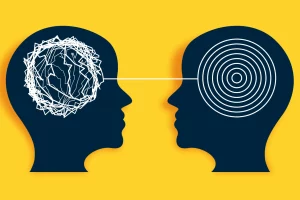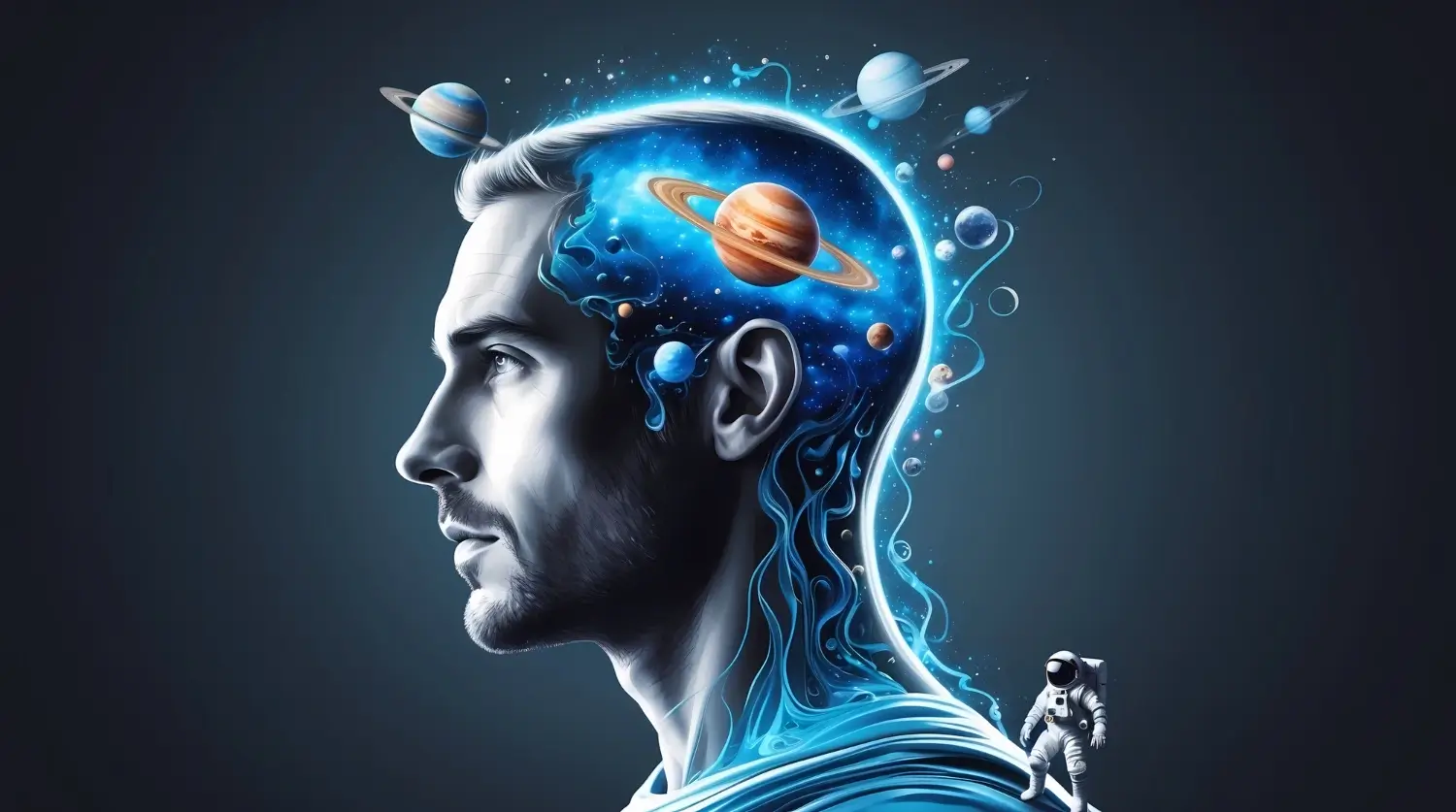
Mindset: A Blueprint for Personal Development
Who comes to mind when you think of someone who is successful, intelligent, and talented? Perhaps someone like Steve Jobs, best known as the co-founder of Apple. In her book, “Mindset: The New Psychology of Success”, Stanford psychologist Carol Dweck said, “Success comes from having the right mindset rather than intelligence, talent, or education”.
In this blog, we’ll explore the transformative magic that occurs when you cultivate the right mindset. Get ready to embark on a mind-altering adventure!
What Is Mindset?
A mindset is a set of beliefs that affect how you see the world and yourself. It exerts a profound influence on your thoughts, emotions, and actions in various situations. The kind of mindset you have can really affect whether you succeed or face challenges in all areas of life. Ever wondered why some people effortlessly conquer challenges while others stumble? Your mindset holds the key to unlocking a world where thoughts shape reality. There are two primary mindsets we can use to navigate life: growth and fixed.
Fixed vs Growth Mindset
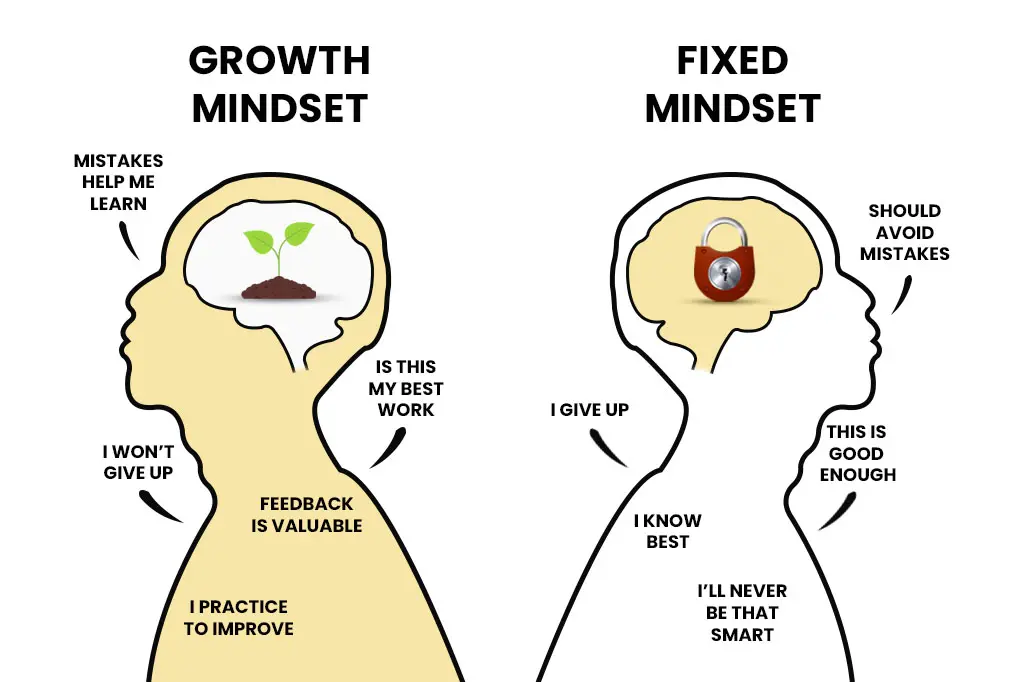
With a fixed mindset, you believe that your abilities are set in stone. You might believe success only comes if you are naturally super talented or smart, and you might need to put more importance on working hard.
On the other hand, if you have a growth mindset, you believe that you can get better at things over time by working hard and not giving up. People with this mindset don’t say everyone can become a genius overnight, but they do believe anyone can get smarter or more skilled by just working at it. It’s like your brain is a muscle that gets stronger the more you use it.
Who Identified the Growth Mindset?
The concept of the growth mindset was identified and popularized by psychologist Carol S. Dweck. Through her research at Stanford University, Dweck explored the idea that individuals who believe their abilities can be developed through dedication and hard work—rather than being fixed traits—are more likely to succeed. Dweck’s work has significantly impacted education and personal development, encouraging people to embrace challenges, persevere through setbacks, and view effort as a path to mastery.
Can a person’s mindset change?
Just like you can exercise and make your muscles stronger, you can also make your brain smarter. Scientists have found that our brains can keep changing, even when we’re grown-ups. They call this ability “neuroplasticity.”
Imagine your brain is like Play-Doh. It can be reshaped and molded. When you learn new things, your brain forms new pathways, like making new roads in a city. This helps your brain work better and faster. The Silva Method Mind Development Program is one of the most amazing ways that offers an incredible opportunity to transform your mindset in remarkable ways.
Dr. Carol Dweck says you can change how you think about your abilities. If you believe you can only do so much, that’s a “fixed mindset.” But if you believe you can keep improving, that’s a “growth mindset.” Studies show that with practice, you can switch from a fixed mindset to a growth mindset. So, just like you can get better at a game or a sport, you can get better at thinking and learning too!
Unfix Your Fixed Mindset with The Silva Method
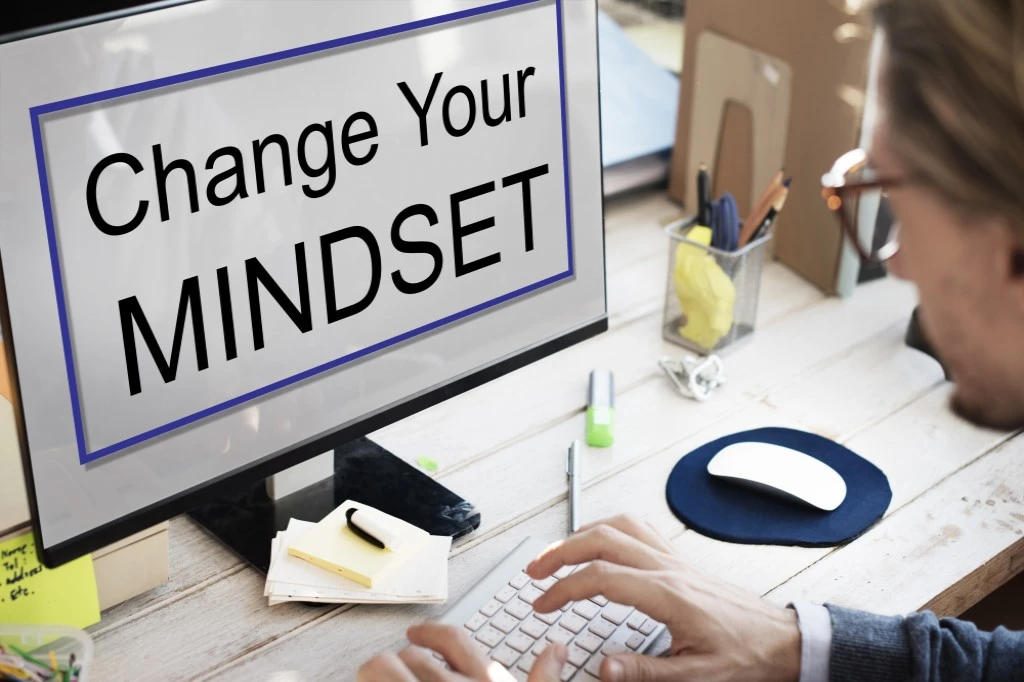
The Silva Method is a self-help and personal development program that aims to help individuals tap into the power of their subconscious mind to improve various aspects of their lives. Jose Silva, the pioneer of the Silva Mind empowerment program, dedicated his life to awakening the hidden power of the human mind. Through a blend of ancient wisdom and modern techniques, this method provides a roadmap to overcoming the mental barriers that keep us stuck in patterns of negativity and stagnation.
Here’s how it helps:
5 Successful People with The Growth Mindset
Albert Einstein
Albert Einstein’s name is synonymous with genius and innovation. His groundbreaking work in theoretical physics revolutionized our understanding of space, time, and the universe. This most famous scientist of all time once said, “I have not failed. I’ve just found 10,000 ways that won’t work.” His growth mindset was evident in his relentless curiosity and willingness to challenge existing beliefs. He embraced failure as a natural part of his learning process.
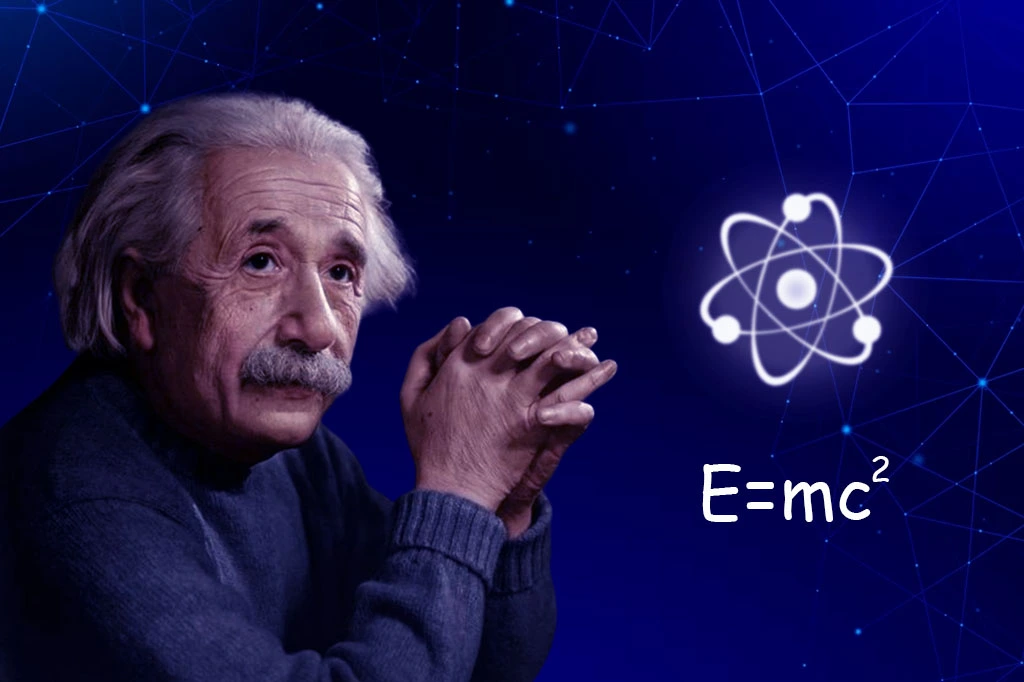
Barack Obama
Barack Obama, the 44th President of the United States exemplifies the power of perseverance and adaptability. From his humble beginnings as a community organizer to becoming the first African American president, Obama demonstrated a growth mindset by embracing change and learning from both successes and failures. His ability to inspire others and navigate complex challenges reflects his commitment to continuous self-improvement.

Bill Gates
Bill Gates, the co-founder of Microsoft, is one of the wealthiest and most successful entrepreneurs. His growth mindset is evident in his relentless pursuit of knowledge and innovation. Despite dropping out of college to pursue his entrepreneurial ambitions, Gates remained committed to learning and adapting to new technologies, ultimately revolutionizing the computer industry.

Steve Jobs
Steve Jobs, the co-founder of Apple Inc. played a pivotal role in revolutionizing the technology industry. Jobs was known for his unwavering quest for excellence and innovation. Despite facing setbacks, including being ousted from his own company at one point, Jobs remained resilient and committed to his vision. He believed in constantly pushing boundaries and learning from failures. He once said, “You can’t connect the dots looking forward; you can only connect them looking backward.”
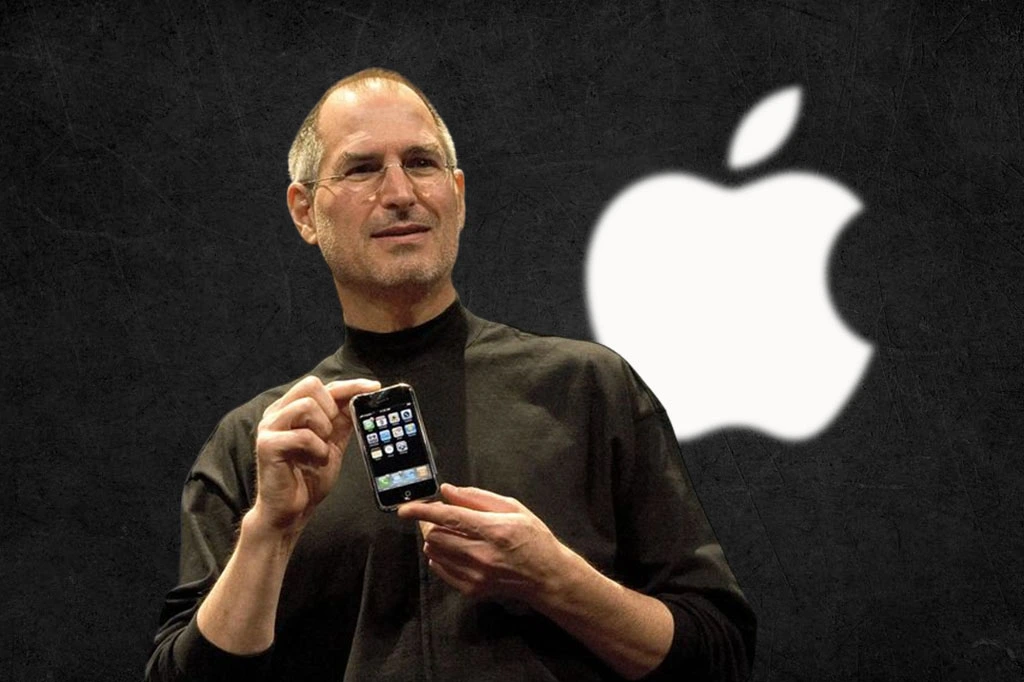
Mark Zuckerberg
Mark Zuckerberg, the co-founder and CEO of Facebook, is one of the youngest billionaires in history. He is a quintessential example of someone with a growth mindset. From his college dorm room, Zuckerberg built one of the most influential social media platforms in the world. Despite facing criticism and controversy, he remained focused on his vision and continued to innovate.
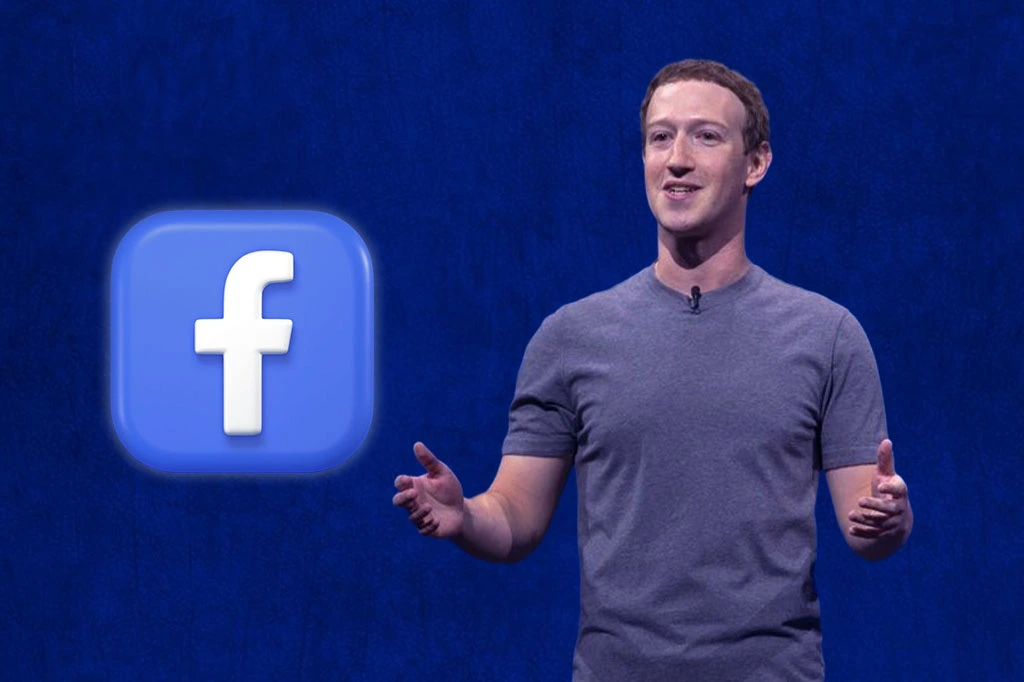
How Mindset Forms
Your mind is a canvas, painted with experiences and colored by influences. The formation of a mindset is a complex process influenced by various factors. Here are some key elements that contribute to the development of mindset:
● Early Experiences: Your childhood experiences, including interactions with family, friends, and caregivers, play a crucial role in shaping your mindset. Positive praise or negative labeling can contribute to the formation of attitudes and beliefs.
● Social Environment: Which cultural and social context in which you are raised significantly influences your mindset. Cultural values, societal norms, and the perspectives of those around you contribute to the development of your mind.
● Media and Influences: Media, including television, books, social media, and other forms of communication, can significantly impact mindset shape perspectives, reinforce certain beliefs, and influence values.
● Role Models: you often look up to your role models or influential figures who inspire you. The qualities and values exhibited by these role models can shape your mindset.
● Life Challenges: Life experiences, challenges, successes, and failures can significantly impact mindset. How you interpret and learn from these experiences contributes to the development of resilience, optimism, or pessimism.
The Impact of A Silva Mindset

Mindset can have a profound impact on personal and professional development. In a fixed mindset, people tend to believe that their abilities, intelligence, and talents are fixed traits, leading them to avoid challenges and fear failure as it may be perceived as a reflection of their inherent capabilities. This mindset hinders growth and learning, as individuals are less likely to embrace opportunities for improvement and may shy away from taking on new tasks or acquiring new skills. In the long run, a fixed mindset can limit one’s potential, resilience, and adaptability, preventing one from reaching full capabilities. Cultivating a growth mindset with The Silva Method, on the other hand, encourages a belief in the capacity for change and improvement, fostering a more positive and adaptive approach to challenges and ultimately contributing to greater personal and professional development.


